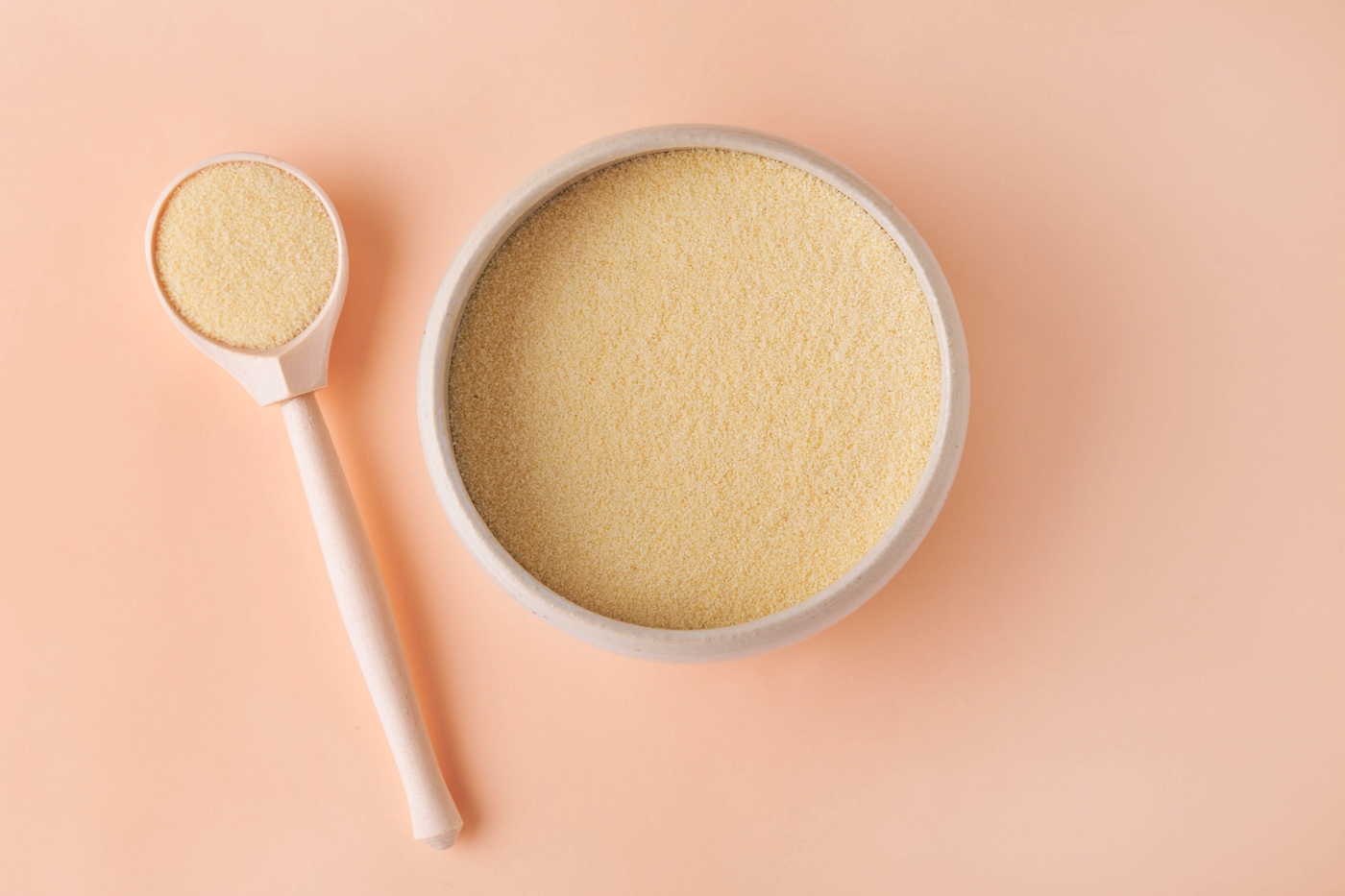

Featured
How To Drink Kombucha For Gut Health
Published: September 6, 2023
Improve your gut health with featured tips on how to drink kombucha. Discover the benefits of this fermented drink and start prioritizing your digestive wellness.
Introduction
Have you ever wondered how to improve your gut health? Well, look no further than kombucha! This fermented tea has gained popularity in recent years for its potential benefits for gut health, and it’s no surprise why. With its unique taste and plethora of health-promoting properties, kombucha is a drink that not only satisfies your taste buds but also provides a natural boost to your digestive system.
Kombucha is not just a trendy beverage; it has a rich history that dates back thousands of years. Originally brewed in ancient China, kombucha quickly spread to other parts of the world, gaining recognition for its medicinal properties. Traditionally, it is made by fermenting sweetened tea with a symbiotic culture of bacteria and yeast, creating a tangy and slightly effervescent drink.
But why is gut health so crucial? The gut, also known as the gastrointestinal tract, plays a vital role in our overall well-being. It is home to trillions of bacteria, commonly referred to as the gut microbiota. These bacteria play a crucial role in digestion, immunity, and even mental health. Maintaining a healthy balance of gut bacteria is key to supporting optimal overall health.
Kombucha can be a valuable addition to your routine if you’re looking to improve your gut health. The fermentation process involved in making kombucha produces beneficial bacteria, enzymes, and organic acids, which are thought to enhance gut health by promoting a diverse and robust microbiota. Additionally, kombucha is rich in antioxidants, which can help reduce inflammation and protect against oxidative stress, further supporting a healthy gut.
In this article, we will explore the benefits of drinking kombucha for gut health, how to choose the right kombucha, and offer tips on incorporating it into your daily routine. So, get ready to sip your way to a healthier gut!
What is Kombucha?
Kombucha is a refreshing and fizzy fermented tea beverage that has been consumed for centuries due to its potential health benefits. It is made by adding a symbiotic culture of bacteria and yeast, commonly known as a SCOBY, to sweetened tea. This mixture is then left to ferment for a period of time, allowing the bacteria and yeast to consume the sugar and produce organic acids, enzymes, and beneficial compounds.
The fermentation process gives kombucha its distinct tangy flavor and mild effervescence. It can range in taste from slightly sweet to tart, depending on the fermentation time and the specific ingredients used.
One of the key components of kombucha is the SCOBY. The SCOBY acts as a starter culture, containing a variety of bacteria and yeast strains that transform the tea into kombucha during the fermentation process. This complex microbial community is responsible for the unique health-promoting properties of kombucha.
Kombucha is typically made from black or green tea, but it can also be brewed using herbal teas or a combination of different tea varieties. While the tea leaves themselves are not present in the final product, their flavors and health benefits are infused into the kombucha during the brewing process.
It’s important to note that kombucha is a live, unpasteurized beverage, meaning it contains beneficial live bacteria and yeasts. These probiotics, similar to the ones found in yogurt and other fermented foods, are known to support a healthy gut microbiota and improve digestion.
Due to its fermentation process, kombucha also contains a small amount of alcohol, typically less than 0.5% ABV. While this alcohol content is generally considered safe for consumption, those who are breastfeeding, pregnant, or have a low tolerance to alcohol should exercise caution and consult with their healthcare provider before consuming kombucha.
Now that we have a better understanding of what kombucha is, let’s dive into why it is beneficial for gut health.
The Importance of Gut Health
When it comes to overall well-being, our gut health plays a crucial role. The gut, or gastrointestinal tract, is a complex system responsible for digestion, nutrient absorption, and elimination of waste. But it’s not just about breaking down food; the gut is also home to trillions of microorganisms that make up the gut microbiota.
The gut microbiota consists of a diverse community of bacteria, viruses, fungi, and other microorganisms. These microbes play a vital role in maintaining a healthy gut and supporting our overall health in numerous ways.
First and foremost, the gut microbiota is involved in digestion. It helps break down certain complex carbohydrates, fiber, and other dietary components that our bodies cannot digest on their own. In turn, these bacteria produce short-chain fatty acids, which provide energy for the gut cells and support a healthy gut lining.
Additionally, the gut microbiota plays a key role in our immune system. It acts as a barrier against harmful pathogens, helping to prevent infections and supporting immune function. A healthy balance of gut bacteria is essential for proper immune responses and can help reduce the risk of autoimmune conditions and allergies.
Studies have also shown a strong connection between the gut and the brain, known as the gut-brain axis. The gut microbiota produces neurotransmitters and other molecules that can influence our mood, behavior, and cognitive function. An imbalanced gut microbiota has been linked to conditions such as anxiety, depression, and even neurodegenerative disorders.
Furthermore, the gut microbiota plays a crucial role in maintaining a healthy metabolism. Certain gut bacteria are involved in regulating body weight, metabolism, and insulin sensitivity. An imbalance in gut bacteria, often referred to as dysbiosis, has been associated with conditions such as obesity, diabetes, and metabolic syndrome.
Given the vital role the gut microbiota plays in our overall health, it’s crucial to support its balance and diversity. This is where kombucha can potentially have a positive impact on gut health.
Now that we understand the importance of gut health, let’s explore the specific benefits that kombucha can provide in promoting a healthy gut microbiota.
Benefits of Kombucha for Gut Health
Kombucha has been praised for its potential benefits in promoting a healthy gut microbiota. Let’s explore some of the key advantages that this fermented tea can offer:
1. Probiotic Properties:
One of the primary reasons kombucha is highly regarded for gut health is its probiotic properties. During the fermentation process, beneficial bacteria are produced, such as Lactobacillus and Bifidobacterium. These probiotic strains can help restore and maintain a healthy balance of gut bacteria, supporting optimal digestion and immune function.
2. Improved Digestion:
Kombucha’s probiotic content can aid in improving digestion. It can enhance the breakdown of certain food components, making them more easily digestible and absorbable. This can alleviate digestive discomfort, such as bloating, gas, and indigestion, allowing for better overall digestive health.
3. Enhanced Nutrient Absorption:
The organic acids produced during the fermentation process of kombucha, such as acetic acid and gluconic acid, have been shown to enhance nutrient absorption. By improving the absorption of key vitamins, minerals, and other crucial nutrients, kombucha can help ensure that your body receives the maximum benefits from the foods you consume.
4. Anti-inflammatory Effects:
Kombucha contains antioxidants and polyphenols that possess anti-inflammatory properties. Chronic inflammation in the gut can lead to various digestive issues and contribute to the development of certain diseases. The anti-inflammatory compounds in kombucha can help reduce inflammation, supporting a healthy gut environment.
5. Detoxification Support:
The organic acids, particularly glucuronic acid, found in kombucha have been associated with aiding in the detoxification process. Glucuronic acid binds to toxins in the body, helping to eliminate them through urine and feces. This detoxification support can contribute to a healthier gut and overall well-being.
While the potential benefits of kombucha for gut health are promising, it’s important to note that more research is needed to fully understand the mechanisms and individual variations in response. Additionally, it’s crucial to choose the right type of kombucha to ensure you’re reaping the maximum benefits.
Next, let’s discuss how to choose the right kombucha to support your gut health goals.
Choosing the Right Kombucha
When it comes to selecting the right kombucha for gut health, there are a few key factors to consider:
1. Look for Live Cultures:
Choose kombucha brands that mention the presence of live cultures on their labels. These live cultures consist of the probiotic bacteria and yeasts that are responsible for the fermentation process. Consuming kombucha with live cultures ensures that you are getting the potential probiotic benefits for your gut health.
2. Check Sugar Content:
Pay attention to the sugar content of the kombucha you choose. While sugar is necessary for the fermentation process, some brands may use excessive amounts, resulting in a higher sugar content in the final product. Opt for kombucha with lower sugar levels to minimize the impact on blood sugar levels and to support overall health.
3. Organic Ingredients:
Consider choosing kombucha made with organic ingredients. Organic teas and other ingredients ensure that you are consuming a beverage free from synthetic pesticides, chemicals, and GMOs. This can contribute to a healthier gut and minimize your exposure to potentially harmful substances.
4. Flavor Preferences:
Kombucha comes in various flavors, from fruity to herbal, and everything in between. Choose a flavor profile that you enjoy to make incorporating kombucha into your daily routine more enjoyable. Experiment with different flavors to find your favorite, and consider trying out unique, locally crafted kombuchas for a taste of variety.
5. Consider Homemade Kombucha:
If you’re feeling adventurous and want complete control over the ingredients, you can try making your own kombucha at home. Brewing kombucha at home allows you to customize the flavor, control the sugar content, and ensure the use of quality, organic ingredients. However, it’s essential to follow proper brewing techniques and maintain a hygienic environment to prevent contamination.
Remember, it’s always a good idea to consult with your healthcare provider before adding kombucha to your diet, especially if you have any underlying health conditions or concerns.
Now that you have chosen the perfect kombucha for your gut health, let’s move on to the next section and learn how to incorporate it into your daily routine.
Incorporating Kombucha Into Your Daily Routine
Now that you have chosen a high-quality kombucha, it’s time to explore how you can incorporate it into your daily routine to reap the benefits for your gut health. Here are some tips to help you make the most of your kombucha experience:
1. Start Slowly:
If you’re new to kombucha, it’s best to start slowly and gradually introduce it into your routine. Begin with a small serving, such as half a cup, and observe how your body responds. Some individuals may experience mild digestive changes initially as their body adjusts to the probiotics and organic acids in kombucha.
2. Choose the Right Time:
Consider consuming kombucha on an empty stomach or between meals. This allows your body to fully absorb the beneficial compounds without interference from other foods. However, listen to your body and find the timing that works best for you. Some people prefer drinking kombucha alongside their meals, and that’s perfectly fine too.
3. Pair it with a Balanced Diet:
Kombucha is a great addition to a well-rounded, nutrient-dense diet. Pair it with a variety of fruits, vegetables, whole grains, lean proteins, and healthy fats to optimize your gut health. Remember, a healthy gut thrives on a diverse range of nutrients and fiber-rich foods.
4. Get Creative with Mix-Ins:
If you enjoy experimenting with flavors and ingredients, consider adding mix-ins to your kombucha. You can infuse it with fresh herbs, slices of fruits, or a splash of citrus juice to create your own custom flavors. Just be mindful of any potential interactions between kombucha and certain ingredients before you mix them together.
5. Make Kombucha Mocktails:
For those who prefer non-alcoholic options, kombucha can be a wonderful base for refreshing and healthy mocktails. Mix it with muddled fruits, herbs, and a splash of sparkling water to create a fizzy and delicious beverage. Kombucha mocktails can be a great alternative to sugary sodas or alcoholic drinks.
6. Stay Consistent:
Consistency is key when it comes to reaping the potential benefits of kombucha for gut health. Aim to incorporate it into your routine on a regular basis, whether it’s daily or a few times a week. By making it a part of your daily habits, you can establish a healthier gut microbiota over time.
Remember to listen to your body and adjust your intake as needed. Some individuals may find one serving a day beneficial, while others may prefer a few sips throughout the day. Pay attention to how your body responds and make adjustments accordingly.
Now that you have some practical tips to incorporate kombucha into your routine, let’s explore the potential side effects and precautions to be aware of.
Tips for Drinking Kombucha for Gut Health
When it comes to drinking kombucha for gut health, there are a few tips to keep in mind to ensure you have an enjoyable and beneficial experience:
1. Check Expiration Dates:
Always check the expiration dates on the bottles or containers of kombucha you purchase. Consuming expired kombucha may lead to unpleasant taste, reduced potency, or potential health risks. Freshness is key in maximizing the potential benefits of kombucha.
2. Store Properly:
Store your kombucha in a cool place away from direct sunlight. Exposure to heat and light can alter the taste and quality of kombucha. Keep it refrigerated to maintain its flavor and freshness. If you’re brewing your own kombucha at home, make sure to follow proper storage techniques to prevent spoilage.
3. Stay Hydrated:
Kombucha can be a refreshing beverage, but it’s important to remember that it shouldn’t replace plain water as your main source of hydration. While kombucha contains some water, it’s best to drink it alongside regular water intake to ensure proper hydration throughout the day.
4. Listen to Your Body:
Every individual reacts differently to foods and beverages. Pay attention to how your body responds to kombucha. If you experience any adverse reactions such as digestive discomfort, bloating, or allergic reactions, it’s best to minimize or avoid consumption and consult with a healthcare provider.
5. Maintain a Balanced Diet:
Kombucha can be a beneficial addition to a well-balanced diet that includes a variety of whole foods. Remember that it’s not a magic potion; its benefits are best experienced as part of a holistic approach to gut health. Be sure to consume a wide range of vegetables, fruits, whole grains, lean proteins, and healthy fats to support overall health.
6. Don’t Overdo It:
While kombucha can offer potential benefits for gut health, it’s important not to overconsume. Moderation is key, as excessive intake of kombucha may lead to imbalances in gut bacteria or potential negative reactions. Start with a small serving and listen to your body to determine the right amount for you.
By following these tips, you can enjoy kombucha as part of a healthy lifestyle and support your gut health in a balanced way.
Now, let’s move on to discussing potential side effects and precautions associated with drinking kombucha.
Potential Side Effects and Precautions
While kombucha offers potential benefits for gut health, it’s important to be aware of potential side effects and take necessary precautions. Here are some key considerations:
1. Allergic Reactions:
Some individuals may be allergic to certain components of kombucha, such as bacteria or yeast strains. If you have a known allergy to these components or experience allergic symptoms like itching, swelling, or difficulty breathing after consuming kombucha, it’s important to avoid it and seek medical advice.
2. Gas and Bloating:
Due to its effervescence and natural fermentation process, kombucha can cause gas and bloating in some individuals, especially if consumed in large quantities. If you experience excessive gas, bloating, or discomfort, it may be helpful to reduce your intake or try different brands or flavors to see if it alleviates the symptoms.
3. Interaction with Medications:
Kombucha may interact with certain medications or supplements. The acids and enzymes in kombucha can affect the absorption or metabolism of some drugs. If you are taking any medications or have specific health conditions, it’s advisable to consult with your healthcare provider before incorporating kombucha into your routine.
4. Alcohol Content:
Although the alcohol content in kombucha is typically low (less than 0.5% ABV), it’s important to be mindful of this if you are avoiding alcohol altogether due to personal or health reasons. Pregnant individuals, individuals with certain medical conditions, or those with a low tolerance to alcohol should exercise caution and consult with their healthcare provider before consuming kombucha.
5. Homemade Brewing Risks:
If you decide to brew your own kombucha at home, there are risks associated with the fermentation process. Contamination by harmful bacteria or molds can occur if proper hygiene and brewing techniques are not followed. It’s essential to thoroughly sanitize equipment, use quality ingredients, and closely monitor the fermentation process to ensure a safe and healthy end product.
It’s important to listen to your body and make informed choices when consuming kombucha. If you have any concerns or experience any adverse effects, it’s best to seek guidance from a healthcare professional.
Now that we have discussed potential side effects and precautions, let’s summarize the key points and benefits of incorporating kombucha into your routine for gut health.
Conclusion
Kombucha is a unique and flavorful beverage that offers potential benefits for gut health. With its probiotic properties, organic acids, and antioxidants, it has become a popular choice for individuals looking to support their digestive system and overall well-being.
By incorporating kombucha into your daily routine, you may experience improved digestion, enhanced nutrient absorption, reduced inflammation, and detoxification support. However, it’s important to choose the right kombucha, check expiration dates, and be aware of potential side effects and precautions.
Remember to listen to your body and adjust your intake as needed. Start slowly, choose kombucha with live cultures, and maintain an overall balanced diet to support a healthy gut microbiota.
If you have any concerns or pre-existing medical conditions, it’s always best to consult with your healthcare provider before adding kombucha to your routine. They can provide tailored advice based on your specific needs.
Incorporating kombucha into your daily routine is just one piece of the puzzle for maintaining optimal gut health. Alongside kombucha, prioritize a diet rich in fiber, fruits, vegetables, and fermented foods, as well as leading an active lifestyle and managing stress levels.
Remember, everyone’s body is different, so what works for one person may not work for another. Pay attention to how your body responds and make informed decisions about what feels right for you.
So, raise a glass of kombucha and toast to a healthier gut! Cheers!









